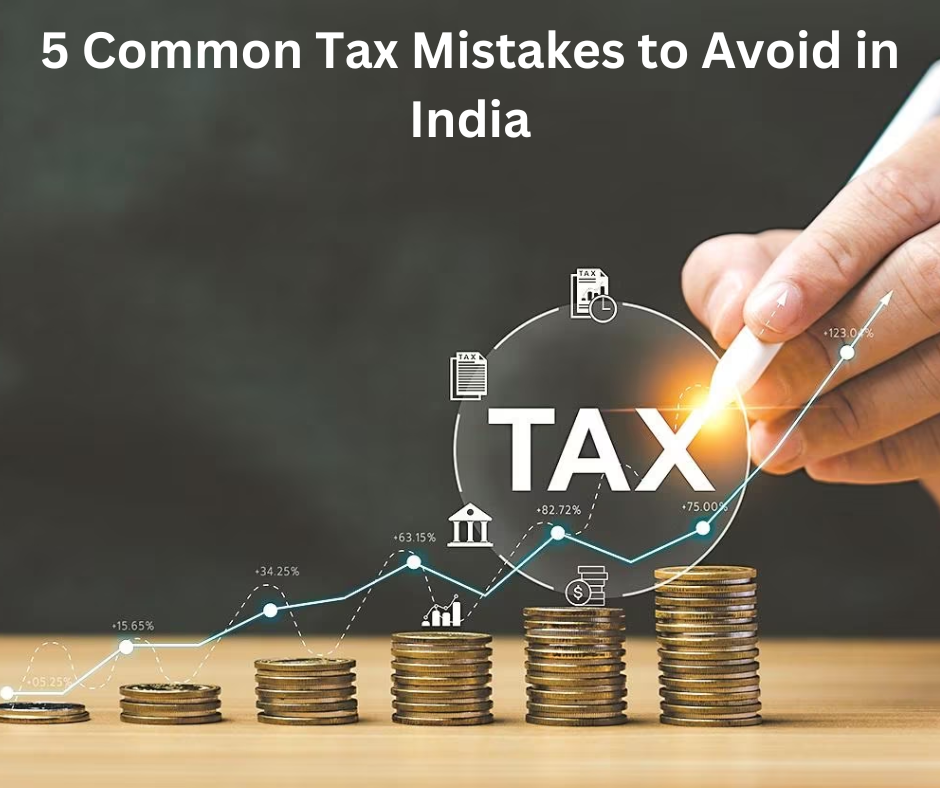Tax season may be a daunting time for lots of people in India. With complicated regulations and numerous forms to fill out, it’s smooth to make mistakes that could value you dearly in consequences or neglected deductions. To help you navigate through the maze of profits tax compliance in India, here are five not-unusual tax mistakes to avoid:
-
Neglecting to File Income Tax Forms on Time
Filing your profits tax returns on time is crucial to avoid penalties and hobby costs. Many procrastinate or forget the cut-off date, leading to needless pressure and economic effects. The due date for submitting income tax compliance in India is commonly July 31 for maximum taxpayers, although it could vary in certain instances. Make sure to mark your calendar and record your returns well before the cut-off date to live compliant with the law.
-
Ignoring TDS Return Filing Obligations
Tax Deducted at Source (TDS) is a mechanism by which the authorities collect taxes at the time of profits era. Employers, banks, and different entities deduct TDS earlier than making payments which include salaries, hobbies, or leases. As a taxpayer, it’s important to make sure that your TDS is accurately deducted and deposited with the authorities. Additionally, if you’re required to document TDS returns filling, which includes Form 24Q for salaries or Form 26QB for belongings transactions, failing to achieve this can appeal to consequences. Stay vigilant and satisfy your TDS duties promptly to keep away from any hassles with the tax government.
-
Underreporting Income or Overlooking Deductions
One of the most common errors taxpayers make is either underreporting their profits or failing to say eligible deductions. Underreporting earnings, whether intentional or unintended, can lead to intense outcomes, including hefty fines or even criminal action. Similarly, neglecting to take gain of available deductions, such as the ones for investments, insurance rates, or charitable donations, can result in paying greater taxes than necessary. Keep thorough statistics of your income resources and expenses at some stage in the 12 months, and visit a tax marketing consultant to maximize your tax savings inside the felony framework.
-
Incorrectly Filling Out Tax Forms
Tax paperwork in India may be complicated and puzzling, particularly for individuals with confined monetary understanding. Errors in filling out bureaucracy, which includes imparting incorrect PAN (Permanent Account Number) details, mismatched income figures, or forgetting to connect essential documents, can result in processing delays and scrutiny with the aid of the tax government. Take the time to recognize the necessities of each shape, double-take a look at your entries for accuracy, and seek professional assistance if needed to make sure compliance with tax policies.
-
Disregarding Tax Planning Opportunities
Tax planning is a 12 months-spherical pastime that could assist minimize your tax legal responsibility and optimize your economic scenario. Many taxpayers wait till the final minute to not forget tax-saving investments or strategies, missing out on precious possibilities to lessen their tax burden. By making plans in advance and taking benefit of deductions, exemptions, and allowances available under the Income Tax Act, you cannot handiest decrease your taxes but also gain your long-time period financial desires. Whether it’s making an investment in tax-saving devices like ELSS (Equity Linked Savings Schemes), contributing to retirement finances, or making use of exemptions for home loans or clinical costs, proactive tax-making plans can substantially benefit your economic fitness.
In conclusion, avoiding these not-unusual tax mistakes lets you navigate the intricacies of the Indian tax system more effectively and ensure compliance with the law. By staying knowledgeable, proactive, and prepared, you could streamline your tax submitting method, reduce errors, and maximize your tax savings capacity. Remember to seek professional advice every time necessary and hold yourself up to date on adjustments in tax laws and guidelines to make informed economic selections.



